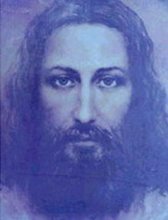Testimony of a Survivor of the Rwanda Genocide
When the attacks started, along with my father and some other men, I escaped to the mountains of Bisesero and Kirongi where we could fight back. We resisted the militia, so they sent the presidential guard. It was hard, but we were really motivated to resist, hoping that some of us might survive. They used heavy ammunition, grenades and rockets. We used stones, arrows and sticks. We'd mix with them, hit them with rocks, tackle them with their guns. Then they would be ordered to move back to re-organise. By the end, official figures say that 85,000 people were killed there, but I think there were 160,000 or 175,000. I come from a big family - 188 people descended from my grandfather. But by the time the French arrived, they had all died except me and my uncle.
I returned to my neighbourhood in the valley of the Kirongi Mountain, but an attack group found me. I asked them why they were going to kill me when I had never wronged them, when in fact I had lived in harmony with them and their children. They told me to ask God because He was the one who created Tutsi and had abandoned them. I knew they were going to kill me. I had seen death and was no longer scared. I asked them to let me pray, and they agreed. While I was praying, they started complaining that my prayer was taking too long and they needed to go somewhere else to find people to kill. They hit me on the head with a club. I fell down unconscious and don't know when they hacked me, but I have four machete scars on my head. For four days I lay there unconscious. I woke up after a dream about being killed. I decided to go to Kibuye town. I would go to the hospital and they would either kill me or treat me. I was really looking for a place for a nicer death. It took me two days.
When I got there, a crowd started to beat me. They asked me why I had come there, and I said, "To be healed or killed, one of the two." One woman stood out and shielded me. She took me inside the hospital and treated me. She gave me antibiotics, washed me, fed me and even gave me clothes because what I was wearing was very dirty. I'd been wearing those clothes since 8 April. She also hired Interahamwe to protect me. She paid them not to kill me. I spent the entire month of June in the hospital. When the Interahamwe went out to kill elsewhere, they used to leave a notice saying that, if they found me dead when they came back, it would be best if my killer was dead as well before they got there. Those were the terms on which I survived, while other people at the hospital were being killed on a daily basis, especially the many girls who had survived at the stadium and were kept to be raped.
The nurse who saved me is still alive today. Sometimes I visit her. I feel overwhelmed by all she did for me. I have nothing to give her in return. She didn't even know me when she saved me. She just saw people torturing me and made a decision on her own to rescue me. So I put that lady in a category of humane people with a true human heart. When I'm in Kibuye, I feel very sad; it's immeasurable. Even though I was lucky to survive, it's still a problem because I cannot forget it. From the first day, I saw people dying bad deaths for no reason. Those scenes frequently replay in my head like a film. It's all kept somewhere in my head. Wherever I go in this world, I will not forget Kibuye. I had a good life and a bad life there; I lost all those people, but it still remains my home. It is a marked place inside of me.
Please read the blog entry dated February 6, 2007: Yours Once Again. See how true it is in the face of this testimony. The Father is moving to bring help and hope to those who cannot forget, and carry deep wounds inside and out. I had never read the testimony of this survivor it's very hard to get them to talk about the genocide, but the Holy Spirit showed the state of the survivors and He was right.
